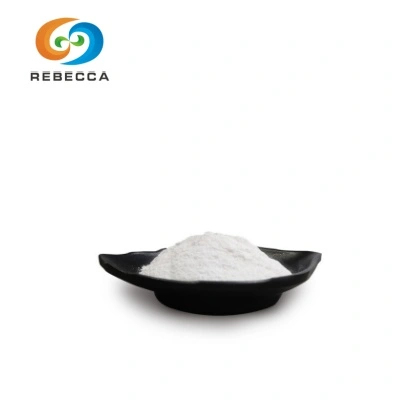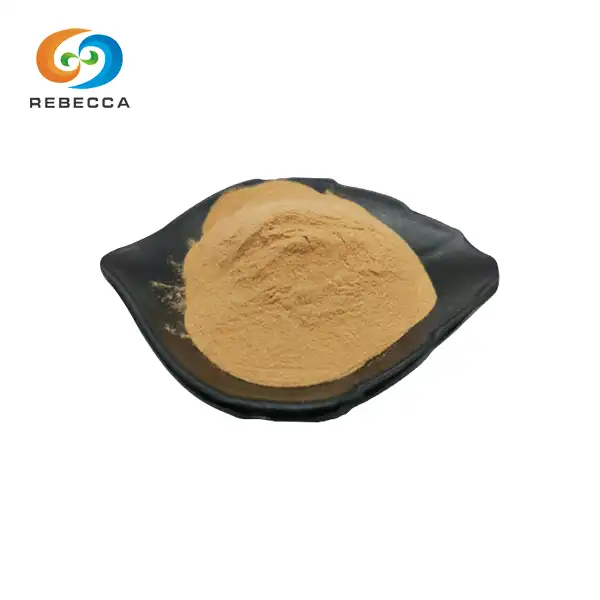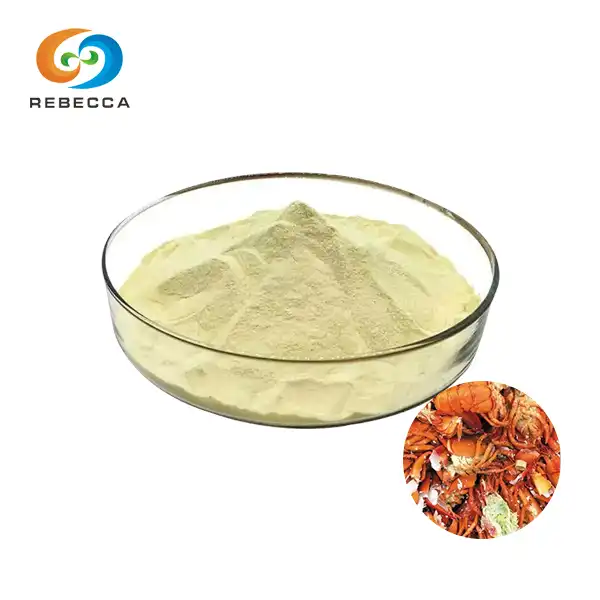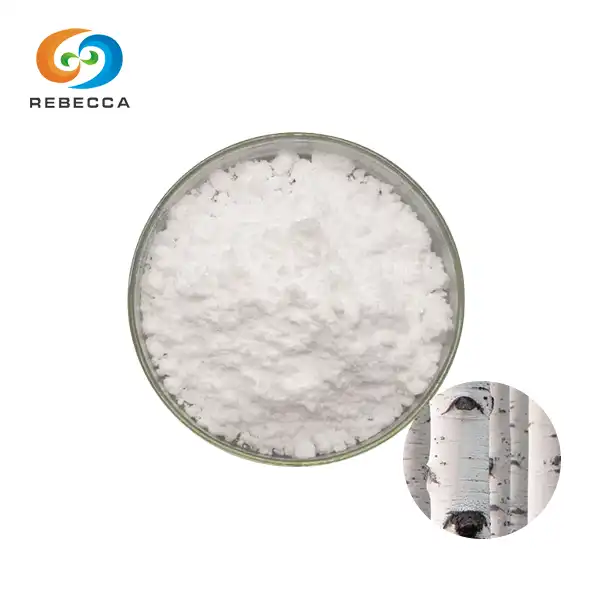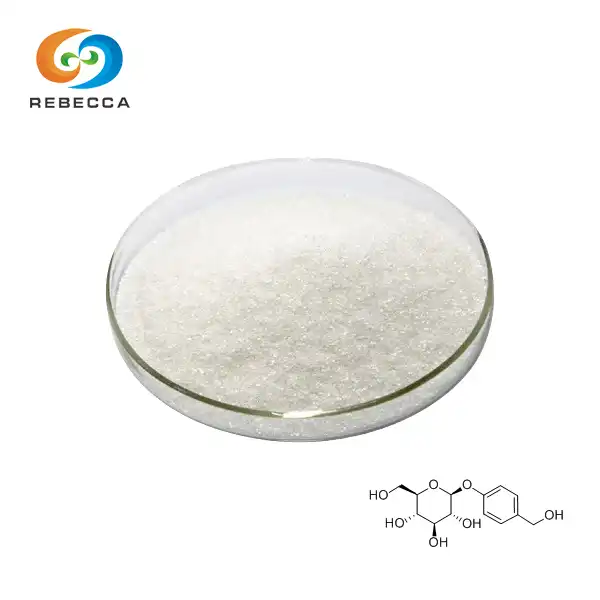Exploring Pure Gastrodin's Role in Traditional Medicine
In the vast realm of traditional medicine, pure gastrodin has emerged as a fascinating compound with a rich history and promising potential. Derived from the orchid-like plant Gastrodia elata, this natural extract has captured the attention of both herbalists and modern researchers alike. As we delve into the world of pure gastrodin, we'll uncover its ancient roots, examine its contemporary applications, and explore how it synergizes with other herbal remedies.

The History and Traditional Uses of Gastrodin
Gastrodin's journey through time is as intriguing as the compound itself. For centuries, practitioners of Traditional Chinese Medicine (TCM) have revered the Gastrodia elata plant, known as "Tian Ma" in Mandarin. This unassuming herb, with its pale, fleshy tubers, has been a cornerstone in treating a myriad of ailments, particularly those related to the nervous system.
Ancient texts describe Tian Ma as a potent remedy for conditions such as headaches, dizziness, and epilepsy. TCM practitioners believed that the herb possessed the unique ability to "calm the liver and extinguish wind," a concept that translates to modern understanding as reducing neural excitability and managing symptoms associated with neurological disorders.
The use of Gastrodia elata wasn't confined to China alone. As knowledge of its medicinal properties spread, it found its way into other Asian medical traditions. In Korea, for instance, the herb was prized for its ability to improve cognitive function and alleviate symptoms of vertigo.
As traditional healers refined their understanding of the plant's properties, they developed various preparation methods to extract its beneficial compounds. These ranged from simple decoctions to more complex processes involving fermentation and combination with other herbs. Little did they know that centuries later, scientists would isolate the key component responsible for many of these effects: gastrodin.
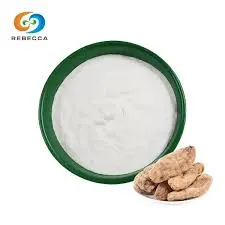
Modern Research on Pure Gastrodin's Health Benefits
The transition of gastrodin from traditional remedy to subject of scientific scrutiny marks a fascinating chapter in the compound's history. As researchers began to investigate the molecular mechanisms behind Gastrodia elata's effects, they honed in on gastrodin as a primary bioactive component.
One of the most compelling areas of research involves gastrodin's neuroprotective properties. Studies have shown that this compound possesses the ability to cross the blood-brain barrier, allowing it to exert its effects directly on neural tissue. This characteristic has opened up exciting possibilities for treating neurodegenerative disorders.
In Alzheimer's disease research, gastrodin has demonstrated potential in multiple ways. It appears to inhibit the formation of beta-amyloid plaques, a hallmark of the disease, while also reducing oxidative stress and inflammation in brain cells. Moreover, some studies suggest that gastrodin may enhance cognitive function by promoting the growth of new neurons, a process known as neurogenesis.
The compound's impact on cerebrovascular health has also garnered attention. Research indicates that gastrodin may improve blood flow to the brain, potentially reducing the risk of stroke and enhancing recovery in its aftermath. This vasodilatory effect, combined with its anti-inflammatory properties, positions gastrodin as a promising agent for maintaining overall brain health.
Beyond neurological applications, gastrodin has shown promise in managing anxiety and depression. Preclinical studies have observed its ability to modulate neurotransmitter levels, particularly those involved in mood regulation. While more research is needed, these findings align with traditional uses of Gastrodia elata for calming the mind and spirit.
The anti-inflammatory effects of gastrodin extend beyond the brain, with potential applications in managing systemic inflammation. This has led researchers to explore its use in conditions ranging from cardiovascular disease to metabolic disorders. The compound's ability to regulate inflammatory pathways may contribute to its wide-ranging health benefits.

Integrating Pure Gastrodin with Other Herbal Remedies
The synergistic potential of pure gastrodin with other herbal remedies represents an exciting frontier in natural medicine. Traditional practitioners have long understood the value of combining herbs to enhance their therapeutic effects, and modern research is beginning to validate and expand upon this ancient wisdom.
One intriguing combination involves pairing gastrodin with Ginkgo biloba extract. Both compounds are known for their neuroprotective properties, but they appear to work through different mechanisms. While gastrodin primarily acts as an antioxidant and anti-inflammatory agent, Ginkgo biloba enhances cerebral blood flow and promotes cognitive function. When used together, these herbs may offer a more comprehensive approach to brain health.
Another promising synergy exists between gastrodin and Rhodiola rosea, an adaptogenic herb known for its stress-reducing properties. Gastrodin's calming effects on the nervous system may complement Rhodiola's ability to modulate the body's stress response. This combination could potentially offer enhanced support for individuals dealing with anxiety or chronic stress.
In the realm of pain management, pure gastrodin shows potential when combined with traditional analgesic herbs like white willow bark or corydalis. While gastrodin addresses neuroinflammation, these herbs target pain through different pathways, potentially offering a more holistic approach to pain relief.
For those seeking to enhance cognitive function, the combination of gastrodin with bacopa monnieri presents an intriguing possibility. Bacopa is renowned for its memory-enhancing properties, while gastrodin supports overall brain health. Together, they may offer a synergistic boost to cognitive performance and neuroprotection.
It's important to note that while these combinations show promise, they should be approached with caution and under the guidance of a qualified healthcare practitioner. Herbal interactions can be complex, and what works well for one individual may not be suitable for another.

Conclusion
The journey of pure gastrodin from ancient herbal remedy to modern therapeutic agent is a testament to the enduring value of traditional medicine. As we continue to unravel the mysteries of this remarkable compound, we gain not only a deeper appreciation for the wisdom of our ancestors but also new tools to address contemporary health challenges.
For those intrigued by the potential of pure gastrodin and seeking high-quality, natural herbal extracts, Shaanxi Rebecca Biotechnology Co., Ltd. stands ready to assist. With a commitment to excellence and a deep understanding of herbal medicine, they offer products that meet the highest standards of quality and efficacy. To learn more about their pure gastrodin extract and other natural products, please contact them at information@sxrebecca.com.
References
1. Chen, P. J., & Sheen, L. Y. (2011). Gastrodiae Rhizoma (tiān má): a review of biological activity and antidepressant mechanisms. Journal of Traditional and Complementary Medicine, 1(1), 31-40.
2. Kumar, H., Kim, I. S., More, S. V., Kim, B. W., & Choi, D. K. (2014). Natural product-derived pharmacological modulators of Nrf2/ARE pathway for chronic diseases. Natural Product Reports, 31(1), 109-139.
3. Liu, Y., Gao, J., Peng, M., Meng, H., Ma, H., Cai, P., ... & Ju, D. (2018). A review on central nervous system effects of gastrodin. Frontiers in Pharmacology, 9, 24.
4. Ng, C. F., Ko, C. H., Koon, C. M., Xian, J. W., Leung, P. C., Fung, K. P., ... & Lau, C. B. (2016). The aqueous extract of rhizome of Gastrodia elata protected Drosophila and PC12 cells against beta-amyloid-induced neurotoxicity. Evidence-Based Complementary and Alternative Medicine, 2016.
5. Zhang, X. L., Yuan, Y. H., Shao, Q. H., Wang, Z. Z., Zhu, C. G., Shi, J. G., ... & Chen, N. H. (2017). DJ-1 regulating PI3K-Nrf2 signaling plays a significant role in bibenzyl compound 20C-mediated neuroprotection against rotenone-induced oxidative insult. Toxicology Letters, 271, 74-83.
_1730691017423.webp)










